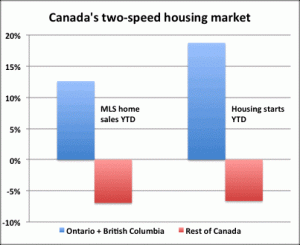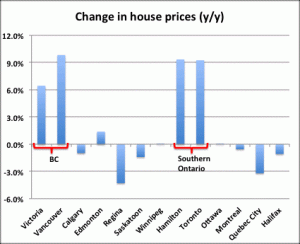Prepare for a 10% minimum down payment
Will stiffer rules help cool the red-hot Toronto and Vancouver housing markets?
Advertisement
Will stiffer rules help cool the red-hot Toronto and Vancouver housing markets?
→ Tougher lending requirements should help cool the housing market, particularly in red-hot Toronto and Vancouver. → It would also help minimize the exposure taxpayers have to insured mortgage default losses.
Currently, if a person buys a home with less than 20% down the lender is legally required to take out mortgage default loan insurance. This insurance reimburses the lender the full mortgage amount should a person default on the loan. The money used to reimburse the lender comes from taxpayer coffers. While this sounds like a win-win—and there are certainly positive elements to this tiered down payment system—there may also be a few unintended consequences. While B.C. and Ontario continue to experience a surge in housing prices and new builds, pricing and builds in the rest of Canada has either stagnated or dropped. Calgary, Regina, Saskatoon, Montreal, Quebec City and Halifax all reported a drop in housing prices, year-over-year, by September 30, 2015.
While B.C. and Ontario continue to experience a surge in housing prices and new builds, pricing and builds in the rest of Canada has either stagnated or dropped. Calgary, Regina, Saskatoon, Montreal, Quebec City and Halifax all reported a drop in housing prices, year-over-year, by September 30, 2015.

Share this article Share on Facebook Share on Twitter Share on Linkedin Share on Reddit Share on Email